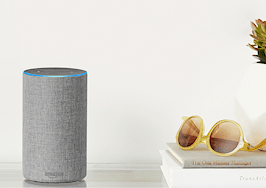Have suggestions for products that you’d like to see reviewed by our real estate technology expert? Email Craig Rowe.
Buyer’s agents should warn clients about opening too many drawers during that next home tour, thanks to a rise in sellers using app-connected video cameras to observe potential buyers.
This raises a number of questions for the industry, the primary one being: what kind of privacy is a buyer entitled to when touring a property?
Should the trend continue to grow, will the industry require listing agents to include showing disclosures alerting buyers to the risk of being monitored?
When asked if she discusses the monitoring issue with buyers, Christy Mond of Allison James Estates & Homes in Truckee, California, said, “I don’t, but I probably should because it’s becoming more common, and it’s considered a courtesy to put it into the MLS. It’s certainly the direction we’re heading.”
Last year, Amazon bought Ring, a technology company that developed a smartphone-enabled doorbell camera with two-way audio. The logical overlap for the acquisition by Jeff Bezos’ company is to enhance its home delivery services and increase its reach into smart home tech.
With Amazon’s ability to quickly evolve consumer technology and get it inside our homes, it’s safe to assume the ability to look into our kitchens on hi-def screens from anywhere in the world will no longer be reserved for early adopters.
In a USA Today article on the topic, a representative for consumer technology research firm Parks Associates, Brad Russell, estimated that 13 percent of all American homes have a Wi-Fi enabled camera in their home.
The same article referenced a Harris Poll commissioned by NerdWallet that reported, “67 percent [of Americans] say they would use such cameras if they were selling a home that already had them.”
“We are aware of it, and we always tell our buyers to watch what they say or do, and we’ll chat outside,” said Ryan Mathys with Coldwell Banker Residential in La Jolla, California. “Last week, we entered a home that had an old-school video camera not so hidden in a plant.”
In an NAR-released video on the matter as part of the “Window to the Law” series, the trade organization recommends the following test be applied when deciding on disclosure of video monitoring: Would the person being recorded have a reasonable expectation of privacy in the location where the recording is taking place?
The video recommends that listing agents make it clear to buyers that there are active cameras in a home that may be used to monitor buyers.
As of now, it’s clear that NAR is leaning on state recording laws and published a state-by-state chart on related laws.
Good buyer’s agents can read clients’ non-verbal reactions as they tour homes, and it may become harder to get that on-the-spot feedback should clients become reticent under the auspices of surveillance.
Compounding this issue is the evolving the reported risk of voice-activated internet appliances having the ability to “listen” to their owners, such as Amazon’s Echo and Google’s Home.
Smart home technology is mostly good, and it can have tremendous upside for real estate agents. Like every new technology though, we may not yet fully understand all the risks.
Have a technology product you would like to discuss? Email Craig Rowe













